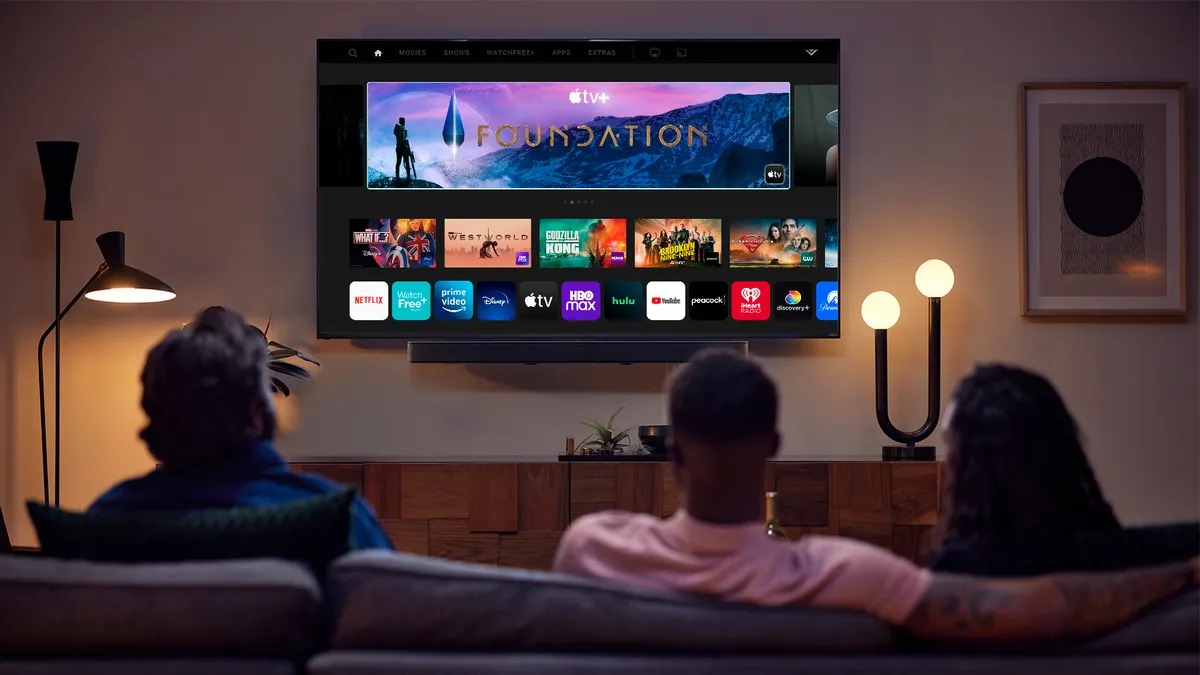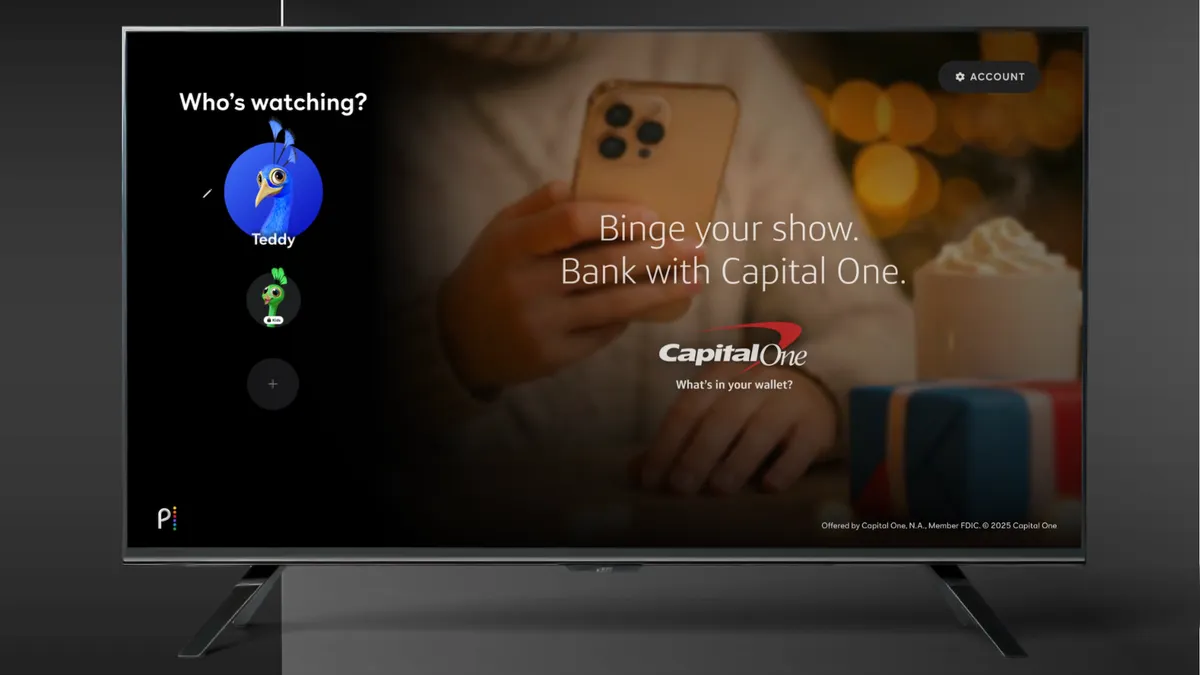Earlier this month, former AOL and Google executive Tim Armstrong and his startup, the DTX Company, announced a new shopping day around promoting direct-to-consumer (DTC) brands during the critical holiday season. Dozens of brands, including kids apparel company Rockets of Awesome, hemp-infused water brand Recess and loungewear line Lunya, are offering discounts on their sites on Nov. 15 — dubbed DTC Friday — as Armstrong's company centralizes them on a dedicated page aimed to boost discovery. DTX will measure whether its ads for the brands spur sales via QR codes and click-through rates.
While it's unclear what impact DTC Friday will have on traditional retailers and Cyber Monday heavyweight Amazon, the strategy reflects key trends in digital marketing and online retail, including brands' desire for alternatives to Instagram and Facebook for advertising and how holiday shopping is kicking off earlier.
Marketing Dive spoke with Ben Hordell, partner of DXagency, about the new holiday shopping day and whether it will stick.
The following interview has been edited for clarity and brevity.
MARKETING DIVE: So give me a quick rundown on the new event?
HORDELL: Conceptually, it's quite interesting. We work with DTC brands and frequently one of our strategies is to network with noncompetitive brands with similar values to see if the sum of the parts is bigger than just going in alone. It's a very creative model.
To me, they've created a network. DTC Friday is a carefully curated digital event that brings these DTC brands together in hopes that by centralizing the advertising, it will help the brands be less reliant on ad platforms like Instagram and Facebook. It could cultivate an alternate marketplace where all of these brands, although independent, can work together to share customer bases and values. Obviously, the DTX company is looking to track what they're responsible for in terms of sending shoppers to each brand's site, which I think is going to be an attribution challenge.
As a brand, participating is fairly low-risk. I saw the mention of Rockets of Awesome being like, "Yeah, we'll do it. We don't have to pay for it, so we'll play and see what happens." If DTX is really careful about the quality of the brands they bring in — what the brand stands for and the quality of the products — and it becomes a virtual mall where working with DTX becomes some sort of seal of approval, I think that could be really valuable for the brands. It's one thing to say we've aggregated all these DTC brands based on who wanted to participate, and any brand selling any quality item could sign up. If it becomes a free-for-all, there's going to be less value in being in that community. But if DTX builds a brand for themselves by careful curation and brands work with them for this day, I think that could become the home page of where people go when they want to shop.
Why this year to kick off the new holiday shopping day?
HORDELL: Well I can't get into Tim Armstrong's head, but the calendar is super favorable with Thanksgiving being so late. The stars aligned from a calendar standpoint. I also think you have some generational stuff where millennials want brands with stories. The goal is to get beyond these early adopters and gain more en masse, but there's still going to be a big discovery aspect today.
I didn't hear about DTC Friday until this week. Did you see much advertising around it prior to this week?
HORDELL: It's been pretty under the radar. I'm a customer of some of the brands involved and none of the communications that I received from those brands mentioned the movement. That's somewhat understandable because I know they're trying to track what comes from the brand organically versus what's coming from the assembly of all these brands. But for being pretty involved in the retail space and online, I feel like this one kind of snuck up on me.
The whole point of DTC Friday is to highlight these brands. But at the same time, this seems like an elaborate brand-building play for DTX. Am I off base?
HORDELL: It is a bit of a brand-building exercise for DTX, but the advertising for it has been awfully quiet. It's a nice step to set the table for a really successful Cyber Monday. From a calendar standpoint, now is an opportune time. Retailers are starting earlier, so that's partially why DTC Friday is mid-November. This kind of leapfrogging of Black Friday and Cyber Monday is strategically really smart. People are ready to spend now. It's the holiday season and we're in it whether we like it or not.
70+ Brands & growing are joining @DTCFriday to celebrate & promote the DTC Revolution in shopping - moving the web from platforms to an ecosystem of shared value (OG web purpose). @thedtxcompany is all in on DTC and giving away $1M w/ @getgivz #shopbetter https://t.co/FMlM37cNYi pic.twitter.com/0F0ftC0wvQ
— Tim Armstrong (@tim_armstrong) November 12, 2019
Say a bunch of people browse these brands today. They're going through the funnel, signing up with the initial pop-up offer, giving their email for 20% off their first purchase. They might not pull the trigger right then but rather add those items to their considerations as they plan out their holiday, and may come back to these brands on Cyber Monday. So again, the attribution might be completely out of whack. It's going to be an interesting challenge to prove the worth of the whole movement. But needless to say, I don't see a negative of participating from the brand side.
You mentioned data. After this, DTX could have a significant amount of data on the engagement and click-through of those QR codes. How do you see this data being used?
HORDELL: DTX's goal will be to try to extrapolate how being part of this bigger movement affects brands' bottom lines. I don't know exactly what they're planning from an attribution standpoint. Are they pixeling the checkout pages of the site? Or will it be more anecdotal where they analyze brands' year-over-year revenue or average order value for that day?
The sophistication in which they set up their tracking is going to be really crucial for them to prove the value of what they're doing. It's not clear whether DTX will work with these brands to help prove the value or if they're going to go on their own to determine their own story for the years ahead.
How do you think Tim Armstrong's experiences at AOL and Google will impacting the marketing and success of this event?
HORDELL: AOL and Google are websites that for many people serve as the front page of the internet. You used to start at AOL as a welcome screen. Now, many people launch their browser and boom, they're at Google. I think Armstrong is trying to be that front page of cool retail by controlling the first step of the shopping journey. So although it's on a much smaller level than AOL or Google, and it's in one vertical, I think the wealth of knowledge he brings from his experience at those giant sites will be invaluable in trying to create this centralized hub.
We have all of these dedicated holiday shopping days now. Black Friday, Cyber Monday, Small Business Saturday, the list goes on. When will it become too much for people?
HORDELL: We're getting there. It's like those social media holidays — National Grilled Cheese Day and the like. Enough is enough already! But if you think about retail therapy, these holidays create an excuse to pursue the vices of shopping and get that retail therapy. People feel almost obligated to shop on Black Friday.
There's a pull because you feel part of something. Cyber Monday drafts off that once people get the adrenaline going from shopping or relaxing all weekend after Thanksgiving. You're back at work and distracted after a couple days off. It's just another excuse to allow the wandering mind at work to buy more things.





















